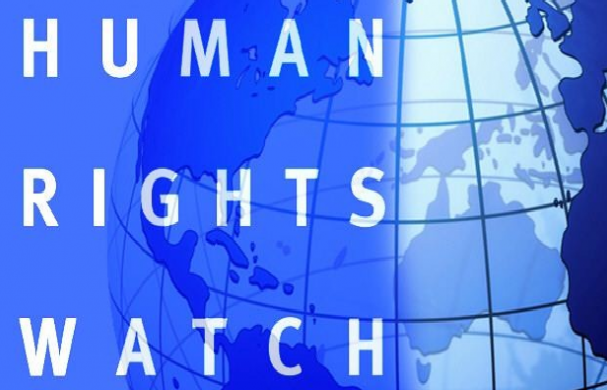Al Wefaq National Islamic Society has studied with great interest the Human Rights Watch report that was released on 28th May 2014, under the title, “Criminalizing Dissent, Entrenching Impunity”.
The report presented facts that prove the continued setback of the Bahraini judicial system since the issuance of the Bahrain Independent Commission of Inquiry (BICI). The report, issued by a highly reputable organisation in the field of human rights, confirmed that the Authority continues to use the judiciary to attack the opposition, meaning that this methodology has not changed since the publication of the BICI report.
Joe Stork, deputy Middle East director at Human Rights Watch, said, “Bahrain’s problem is not a dysfunctional justice system, but rather a highly functional injustice system”. This statement should be taken into high consideration by the international community that denied the existence of a dysfunctional justice system in Bahrain. Mr. Stork is an international rights expert and his statement is based on the conclusion of the report that was written with high professionalism. His organization’s report is based on judgments and documents from Bahraini courts and which were compared with international prosecution standards.
The report is an important document containing a high number of facts on the criminalizing of dissent through an inclusive policy that produces oppressive judgments. It is hard to say that the problem exists in certain branches of the litigation process. Facts revealed that the military prosecution, public prosecution, special courts and civil criminal judiciary all play integrating roles into a judicial policy that links all these branches with a single goal which is; to criminalize dissent.
The report has put judicial pursuit of security personnel involved in human right violations on the other hand of this system. It found that freedom of expression in itself is criminalized. Secondly, it found tangible efforts to provide immunity to security personnel through acquittals and light sentence.
Recommendation numbers 7 and 8 to the Government of Bahrain state:
- Appoint an independent commission to investigate and report publicly on the Public Prosecution Office’s use of evidence obtained through torture or ill-treatment in the indictments and legal proceedings examined in this report and otherwise, in violation of article 19(d) of Bahrain’s Constitution and international law.
- This independent commission should also investigate prosecutors and other law enforcement officials who, in the trials examined in this report and otherwise, colluded in obtaining evidence through torture and ill-treatment or failed to report allegations that evidence had been obtained through torture or ill-treatment, and those found responsible should be prosecuted.
The two recommendations, listed on page number 6 of the report, include a genuine discussion into the role of the institutions that are supposed to provide justice, and this was concluded in the title of the report. The Government of Bahrain must implement these recommendations stand on rigid bases in the report and which cannot be covered up with support of Public Relations firms
It is noticeable that the report did not recommend further training or establishing of administrable structures. This is because the organization feels that the problem is not in poor training, but rather, a problem of rooted-methodology that the report finds can be addressed through the mechanisms of the International Human Rights Law.
Al Wefaq commends the report for its response to some of the international community who have chosen to compliment the Bahraini Authority. Al Wefaq also commends the findings of the report in that stability and reform will remain out of reach in Bahrain as long as its allies offer uncritical support in the face of mounting evidence of abuses.
Finally, Al Wefaq would like to thank Human Rights Watch for its significant efforts that reveal a small portion of the agonies of the victims.
As a political society, Al Wefaq sees that the report brings to attention that the international community must urgently realize the necessity of reform in Bahrain. The lack of official desire to reform is reflected in the failure to implement the BICI recommendations and the establishment of institutions that, according to the report, help in the entrenchment of immunity, such as the Special Unit in the Public Prosecution Office.
/149

